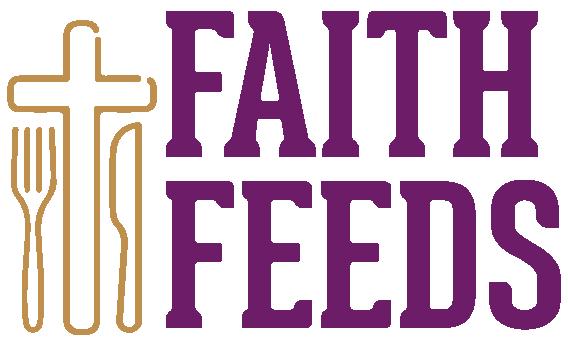
Having a faith conversation with old and new friends is as easy as setting the table.
JOURNEYING IN FAITH AMID POLARIZATION: DIALOGUE
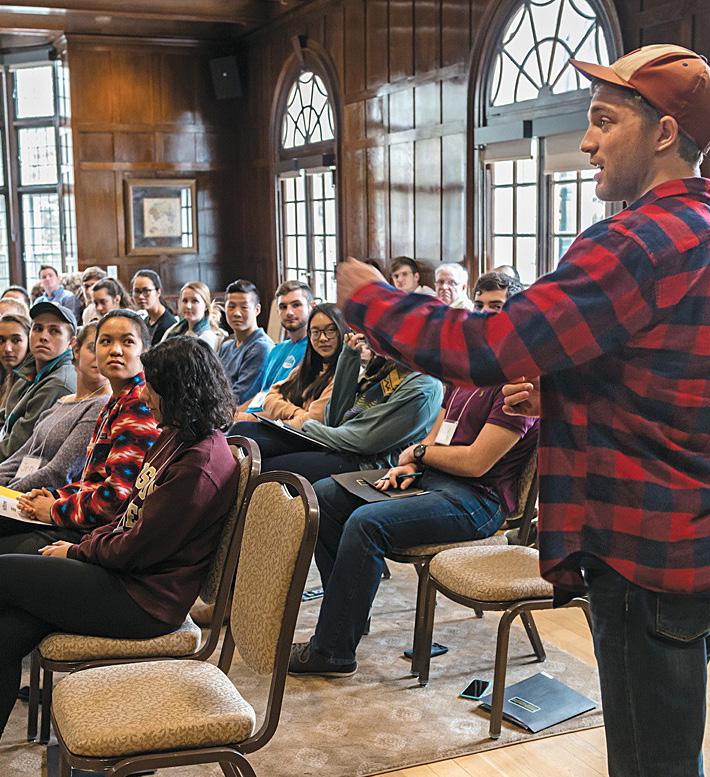
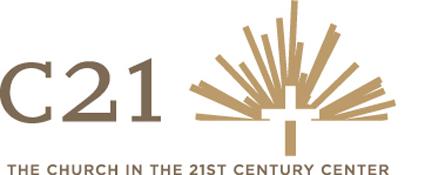
FAITH FEEDS GUIDE - JOURNEYING IN FAITH AMID POLARIZATION: DIALOGUE | 2 BOSTON COLLEGE | THE CHURCH IN THE 21ST CENTURY CENTER CONTENTS Introduction to FAITH FEEDS 3 Conversation Starters 6 • Loving Our Neighbor through Dialogue by the USCCB 7 Conversation Starters 9 • Learning in Conflict: Explore Ignatian Dialogue by Julie Schumacher Cohen 10 Conversation Starters 12 • St. Ignatius’ Wisdom on Dialogue with Reflection Questions adapted from St. Ignatius of Loyola 13 • Gathering Prayer 14


The C21 Center Presents
The FAITH FEEDS program is designed for individuals who are hungry for opportunities to talk about their faith with others who share it. Participants gather over coffee or a potluck lunch or dinner, and a host facilitates conversation using the C21 Center’s biannual magazine, C21 Resources.
The FAITH FEEDS GUIDE offers easy, step-by-step instructions for planning, as well as materials to guide the conversation. It’s as simple as deciding to host the gathering wherever your community is found and spreading the word.
All selected articles have been taken from material produced by the C21 Center.
FAITH FEEDS GUIDE - JOURNEYING IN FAITH AMID POLARIZATION: DIALOGUE | 3 BOSTON COLLEGE | THE CHURCH IN THE 21ST CENTURY CENTER

FREQUENTLY ASKED QUESTIONS
Who should host a FAITH FEEDS?
Anyone who has a heart for facilitating conversations about faith is perfect to host a FAITH FEEDS.
Where do I host a FAITH FEEDS?
You can host a FAITH FEEDS in-person or virtually through video conference software. FAITH FEEDS conversations are meant for small groups of 10-12 people.
What is the host’s commitment?
The host is responsible for coordinating meeting times, sending out materials and video conference links, and facilitating conversation during the FAITH FEEDS.
What is the guest’s commitment?
Guests are asked to read the articles that will be discussed and be open to faith-filled conversation.
Still have more questions? No problem! Email karen.kiefer@bc.edu and we’ll help you get set up.
FAITH FEEDS GUIDE - JOURNEYING IN FAITH AMID POLARIZATION: DIALOGUE | 4 BOSTON COLLEGE | THE CHURCH IN THE 21ST CENTURY CENTER

READY TO GET STARTED?
STEP ONE
Decide to host a FAITH FEEDS. Coordinate a date, time, location, and guest list. An hour is enough time to allocate for the virtual or in-person gathering.
STEP TWO
Interested participants are asked to RSVP directly to you, the host. Once you have your list of attendees, confirm with everyone via email. That would be the appropriate time to ask in-person guests to commit to bringing a potluck dish or drink to the gathering. For virtual FAITH FEEDS, send out your video conference link.
STEP THREE
Review the selected articles from your FAITH FEEDS Guide and the questions that will serve as a starter for your FAITH FEEDS discussion. Hosts should send their guests a link to the guide, which can be found on bc.edu/FAITHFEEDS.
STEP FOUR
Send out a confirmation email a week before the FAITH FEEDS gathering. Hosts should arrive early for in-person or virtual set up. Begin with the Gathering Prayer found on the last page of this guide. Hosts can open the discussion by using the suggested questions. The conversation should grow organically from there. Enjoy this gathering of new friends, knowing the Lord is with YOU!
STEP FIVE
Make plans for another FAITH FEEDS. We would love to hear about your FAITH FEEDS experience. You can find contact information on the last page of this guide.
FAITH FEEDS GUIDE - JOURNEYING IN FAITH AMID POLARIZATION: DIALOGUE | 5 BOSTON COLLEGE | THE CHURCH IN THE 21ST CENTURY CENTER

CONVERSATION STARTERS
Here are three articles to guide your FAITH FEEDS conversation. We suggest that you select two that will work best for your group, and if time permits, add in a third. In addition to the original article, you will find a relevant quotation, summary, and suggested questions for discussion. We offer these as tools for your use, but feel free to go where the Holy Spirit leads. Conversations should respect and ensure confidentiality between participants.
This guide’s theme is: Journeying in Faith Amid Polarization - Dialogue
FAITH FEEDS GUIDE - JOURNEYING IN FAITH AMID POLARIZATION: DIALOGUE | 6 BOSTON COLLEGE | THE CHURCH IN THE 21ST CENTURY CENTER

LOVING OUR NEIGHBOR THROUGH DIALOGUE
By the United States Conference of Catholic Bishops (USCCB)
Polarization abounds—it seems to be everywhere in our world today, and unceasing. We find it in our families, neighborhoods, political systems, on the news. How can we, as Catholics, respond to this division in our world? In his encyclical Fratelli Tutti, Pope Francis urges Catholics and all people of goodwill to seek “a better kind of politics, one truly at the service of the common good” (no. 154). In Pope Francis’s vision, we can see one another as members of one family. We can seek to encounter. We can identify common values. We can listen to understand. We can seek the truth together. In this way, we as the Church can respond to the call “to sustain hope, to be a sign of unity...to build bridges, to break down walls, to sow seeds of reconciliation” (no. 276). Using the tools of dialogue can help us to do exactly this.
DIALOGUE AS AN ACT OF LOVE
Some might say that dialogue is too simple of a tool to create the radical change the Holy Father envisions. Pope Francis calls us to take another look. Engaging in dialogue across the boundaries of experience enriches our life of faith at home and in the wider community. The process of encounter, which invites us to relationship, is one way that we show our love for God, neighbor, and self. We show our love for God when we recognize his presence in each person, created with dignity and in his image. We recognize God’s presence even in those with whom we disagree. When we open ourselves to universal love and see all people as our sisters and brothers, we express our love for the Father of our single human family. We show love for God and reverence for all whom he has created through a dispostion of respect and by listening to others in order to truly understand. We show our love of neighbor by choosing to engage in the world around us instead of turning inward. We can cultivate the “tender love for
others” that Pope Francis encourages, expressed in “love that draws near and becomes real. A movement that starts from our heart and reaches the eyes, the ears and the hands....Tenderness is the path of choice for the strongest, most courageous men and women” (no. 194). Pope Francis tells us that dialogue is the key to building communities that rise above the damage done by indifference: “Dialogue between generations; dialogue among our people, for we are that people; readiness to give and receive while remaining open to the truth. A country flourishes when constructive dialogue occurs between its many rich components” (no. 199).
We love ourselves when we engage in dialogue. As we prepare for dialogue, we have the opportunity to engage in formation of our consciences through prayerful reflection, study of Scripture and Church teaching, and guidance from reputable experts. We also engage in critical examination to ensure that our perspectives are rooted in truth, that our sources of information are unbiased, and that we do not open ourselves to manipulation by those who spread falsehoods for political gain. In addition, when we actively engage in true dialogue, we “grow in our ability to grasp the significance of what others say and do, even if we cannot accept it as our own conviction” (no. 203). Dialogue should be an experience of mutual growth rooted in recognition of the dignity of all people. The process of dialogue may bring to light hidden realities that require change of perspective on the part of both conversation partners, in service to protecting the inviolable dignity of all.
WHAT DOES POPE FRANCIS MEAN WHEN HE CALLS US TO AUTHENTIC DIALOGUE?
True, honest dialogue commits us to love of God,
FAITH FEEDS GUIDE - JOURNEYING IN FAITH AMID POLARIZATION: DIALOGUE | 7
ARTICLE 1
neighbor, and self, and helps us to deepen the experience of encounter with others. Entering into dialogue with someone with whom we might not agree can be scary or uncomfortable. That is okay. Staying in dialogue can be a way for us to grow together, finding connections and common ground where there seemed to be none (no. 244). However, staying in an uncomfortable moment of tension or growth is different than participating in a conversation with someone who is disrespectful or who degrades others’ dignity. We must point out harmful language, and if necessary, refuse to take part if both parties are not committed to productive conversation.
Dialogue can be productive as long as both parties are committed to shared values, such as the common good, integral human development, or the basic rights that should be available to all people. Both parties must also be committed to seeking the truth: “Truth, in fact, is an inseparable companion to justice and mercy” (no. 227). Truth, justice, and peace hold one another accountable like a system of checks and balances. Without one, human dignity is often disrespected and laid aside. As a precondition for dialogue, Pope Francis writes, “We need to learn how to unmask the various ways that the truth is manipulated, distorted and concealed in public and private discourse. What we call ‘truth’ is not only the reporting of facts and events, such as we find in the daily papers. It is primarily the search for the solid foundations sustaining our decisions and our laws” (no. 208).
Our Catholic commitment to human dignity is a central tenet of our faith and requires us to act in a way that honors our own God-given dignity and the dignity of others, no matter the circumstances of their lives. Seeking these truths through dialogue can be hard work and requires clear thinking, thoughtful description of what we mean, and a sense of generosity in listening to one another.
Pope Francis recognizes and asks us to celebrate the vast gifts and richness of our world. Some fear that tolerating a diversity of perspectives means that we let go of our own convictions. Pope Francis tells us this is not the case. “Authentic social dialogue involves the ability to respect the other’s point of view and to admit that it may include legitimate convictions and
concerns” (no. 203). He urges us to welcome many people to the table, and to create opportunities for encounter. Doing so can help us to overcome old barriers and to look with fresh eyes on issues that have caused us great division.
Finally, Pope Francis criticizes “destructive forms of fanaticism” which “are at times found among religious believers, including Christians; they too ‘can be caught up in networks of verbal violence through the internet and the various forums of digital communication...’” (no. 46). We must be especially attentive to our online engagement, always remembering that an actual person, made in God’s image, is on the other side of our comments, and that our engagement should be guided by love.
HOW CAN WE BEGIN?
As with anything new, it is important to prayerfully prepare and take stock of our own posture as we enter into a dialogue, ensuring we are ready and open to learning while growing in relationship.
1. Before any dialogue, it can help to ask the question, What could I love about this person? I must remember that he or she is a child of God, whether I know him or her personally. He or she is my sister or brother—not a challenge to overcome but rather a collaborator in the search for common ground.
2. Then we must ask: What am I hoping for in this dialogue? Am I seeking to truly understand their point of view? Or am I looking to persuade them?
3. If we are seeking to understand, what questions can we ask that will help us understand more? Can we be like a detective searching for clues and finding points of encounter and commonality?
4. What are the values I bring to the table? How can I be open to finding common values with my conversation partner? What might we have in common? To what are we both committed?
Let us be guided by love in finding pathways to dialogue. Though it can be messy, Pope Francis urges us to go beyond “merely parallel monologues” and instead engage in true dialogue (no. 200). Let true dialogue and love for neighbor be our aim.
From the USCCB’s website, Civilize It, which offers resources to address polarization.
FAITH FEEDS GUIDE - JOURNEYING IN FAITH AMID POLARIZATION: DIALOGUE | 8 BOSTON COLLEGE | THE CHURCH IN THE 21ST CENTURY CENTER
ARTICLE 1

LOVING OUR NEIGHBOR THROUGH DIALOGUE
“When dialogue stops, love dies and resentment and hate are born. But dialogue can restore a dead relationship. Indeed, this is the miracle of dialogue: it can bring relationship into being, and it can bring into being once again a relationship that has died.”
Reuel L. Howe, “The Miracle of Dialogue”
Summary
The USCCB describes dialogue as an act of love. Reflecting on Pope Francis’ teaching in the encyclical Fratelli Tutti, the authors understand dialogue as grounded in encounter: an invitation to relationship that shows love for God, our neighbors, and ourselves. Through dialogue, we can work against polarization by seeking common ground, listening to understand, and valuing the dignity of all people, whether we agree with them or not.
Questions for Conversation
1. The USCCB’s article states that “dialogue with someone with whom we might not agree can be scary or uncomfortable. That is okay.” How have you experienced discomfort when trying to dialogue with others? How have you tried to work through that discomfort or fear? Did you learn or grow from this experience?
2. The article invites us to “be guided by love in finding pathways to dialogue,” even though this can be “messy.” What do you think of this messiness? Can acknowledging the imperfection of dialogue take the pressure off of a conversation and allow you to better “risk” being in dialogue?
3. Dialogue can happen in many settings, even online, where “an actual person, made in God’s image, is on the other side or our comments.” Considering our online world, what are particular challenges or opportunities for dialogue in this era?
FAITH FEEDS GUIDE - JOURNEYING IN FAITH AMID POLARIZATION: DIALOGUE | 9 BOSTON COLLEGE | THE CHURCH IN THE 21ST CENTURY CENTER
ARTICLE 1

LEARNING IN CONFLICT: EXPLORE IGNATIAN DIALOGUE
By Julie Schumacher Cohen
It has become axiomatic to observe that the United States is highly polarized. In a 2020 Pew Research Center poll, eight in ten registered voters in both political camps said “their differences with the other side were about core American values.” Not only is the public divided substantively about policy issues, but it is marked by what political scientists call “affective polarization,” with increased distrust and dislike impacting social relationships. In addition to these tensions, the country is also not immune to political violence, as was displayed during the insurrection at the Capitol on January 6, 2021.
As future leaders, college students are an important part of our civic reality; this national context is the environment in which they are learning. The 2016 American Freshman survey called that cohort of incoming students “the most politically polarized” in its history.
In 2017 at the University of Scranton, a team of faculty and staff colleagues began a program called Bursting our Political Bubbles: Dialogue Across Differences. Through co-curricular dialogues on such topics as im-
migration, the NFL kneeling protests, guns, and cancel culture, we seek to help students better understand others’ perspectives and what values, experiences, and motivations undergird them. We have worked with nonprofit partner Essential Partners to incorporate their reflective, structured methods. In keeping with intergroup “contact theory,” the dialogue groups are designed to foster “equal status” with a communication agreement that: sets time limits, so that no one voice dominates; allows participants to “pass” if they are not ready or do not wish to respond; and clarifies that “civility does not mean lack of dissent” to make space for necessary disagreement.
Such dialogue is not new. Back in the 16th century, St. Ignatius of Loyola provided his own guidance to the Jesuits attending the Council of Trent, urging the Fathers to “understand the meaning, learnings and wishes of those who speak” and to express views with “humility and sincerity.” Communication across difference has also long been promoted by political theorists, such as Jurgen Habermas, John Stuart Mill, and Hannah Arendt, as beneficial to citizens in a democracy.
FAITH FEEDS GUIDE - JOURNEYING IN FAITH AMID POLARIZATION: DIALOGUE | 10
ARTICLE 2
So what does such dialogue yield? Working with faculty partners Teresa Grettano (English & Theatre) and Jessica Nolan (Psychology), we designed a mixed-methods approach to assessing the effectiveness of political dialogues.
Our goal was not to change anyone’s attitude about a particular topic, but rather to shift participants’ attitudes toward the “other” and engaging around contentious issues. Our results to date have shown that participation in a single dialogue session can increase participants’ willingness to engage in dialogue across differences going forward; it can also result in a lowering of the perception that political dialogue is a “waste of time.”
The latter was underscored by March 2022 dialogue participants who conveyed that despite widening political differences which make dialogue harder than ever—due to COVID-19, contentious elections, and the murder of George Floyd—the surfacing of inequities and tensions does create an opportunity to address long-standing American problems.
Students completing post-dialogue essays have also revealed more about their learning, which may be understood in terms of three categories offered by education scholar Rachel Wahl: “hermeneutic,” where it deepens understanding of other people; “deliberative,” where it increases understanding of political issues; and “process,” where it builds capacity for difficult conversations.
We see “hermeneutic” learning in a student who shared that the dialogue “helped me to know [my peers] beyond their name/major/hometown.” “Deliberative” learning can be observed in another student’s assertion that, “If we stay in our political bubble...we aren’t learning anything. When we engage in dialogue with those we disagree with, it challenges us not only to defend our own opinion but to also consider the other side of the issue.” Students wrote about the dialogue “process,” sharing that they “enjoyed how there was no back and forth arguments,” giving space for reflection. Articulation and listening were also key themes. One student concluded that most participants “could effectively communicate about social issues even when they disagree, which is truly thrilling.” Another underscored how “just simply listening has a
profound effect on the way we hear and understand people.”
The learning benefits of dialogue are significant for institutions of higher education, particularly Jesuit institutions. At the same time, it is not a panacea. For instance, my colleague Dr. Grettano urges participants to “keep in mind the ‘Ignatian presupposition’ or ‘plus sign’ to the extent possible”; suspending judgment of another can risk downplaying problematic behaviors or prejudices. Further research around dialogue and depolarization is also necessary and ongoing. Some political scientists have pointed out that reducing partisan conflict in the American past “has sometimes come at the expense of the rights of, and justice for, marginalized minority groups.”
While it seems obvious, and necessary, to want to bring down our political temperature, some amount of disruption and confrontation is often essential for societies to reject and overcome oppression. As the University of Pennsylvania’s Diana Mutz has written in Hearing the Other Side, there is an “inherent tension between promoting a society with enthusiastically participative citizens and promoting one imbued with tolerance and respect for differences of opinion.” Can we dialogue to decrease intolerance and foster better understanding and still take principled stands against our political opponents through activism and advocacy? If we seek a future with nonviolent approaches that address long-standing injustices, it’s clear that the practice of dialogue is one important, though not exclusive, educational component. As Pope Francis wrote in his most recent encyclical, Fratelli Tutti, “Authentic reconciliation does not flee from conflict, but is achieved in conflict, resolving it through dialogue and open, honest and patient negotiation.”
College campuses remain important places for such opportunities.
Julie Schumacher Cohen is assistant vice president for community and government affairs and chair of the community-based learning board at the University of Scranton.
This article was originally published online in Conversations on Jesuit Higher Education (August 23, 2022).
FAITH FEEDS GUIDE - JOURNEYING IN FAITH AMID POLARIZATION: DIALOGUE | 11 BOSTON COLLEGE | THE CHURCH IN THE 21ST CENTURY CENTER

LEARNING IN CONFLICT: EXPLORE IGNATIAN DIALOGUE
“Teach me your way of looking at people: as you glanced at Peter after his denial, as you penetrated the heart of the rich young man and the hearts of the disciples.
I would like to meet you as you really are, since your image changes those with whom you come into contact.”
Pedro Arrupe, S.J., “Teach Me Your Ways”
Summary
Julie Schumacher Cohen discusses recent research into dialogue-learning processes on college campuses. Such workshops and research support St. Ignatius’ “Presupposition for Charity” by offering an opportunity for students and communities to become more capable of intentionally listening to understand one another. Although not a one-size-fits-all solution, Schumacher Cohen maintains that dialogue is vital to creating a less-polarized environment, and that college campuses can offer a special place for this kind of learning.
Questions for Conversation
1. What do you think is effective in Schumacher Cohen’s dialogue model? How could you employ a similar model to improve opportunities for dialogue?
2. How can the "Presupposition to Charity," whereby a person assumes the best intentions behind another person’s statements, provide a welcome space for dialogue?
3. How can we carefully engage in dialogue without losing the essential tensions of disruption and conflict that can lead to just action and reconciliation? Does an Ignatian framework make this balancing act feel more possible? How?
FAITH FEEDS GUIDE - JOURNEYING IN FAITH AMID POLARIZATION: DIALOGUE | 12 BOSTON COLLEGE | THE CHURCH IN THE 21ST CENTURY CENTER
ARTICLE 2
ST. IGNATIUS' WISDOM ON DIALOGUE
In a letter to Jesuits attending the Council of Trent in 1546, St. Ignatius of Loyola offered the following timeless advice, applicable to any dialogue and encounter with others:
• Learn the surpassing worth of conversation; be slow of speech;
• Be considerate and kind;
• Pay attention to the whole person;
• Understand the meaning, learnings, and wishes of those who speak;
• Be free of prejudice; argue from authority cautiously;
• Quote important persons only if arranged beforehand;
• Consider the reasons on both sides without showing attachment to your own opinion;
• Be modest when you are certain;
• Choose to speak at the other’s convenience even when certain;
• Give conversation the time that it needs.
“Finally, if some point of human or divine science is under discussion and I have something to say, it will be of great help to forget about my own leisure or lack of time; that is, my own convenience. I should rather accommodate myself to the convenience of him with whom I am to deal so that I may influence him to God’s greater glory.”
In the Spiritual Exercises, Ignatius also offers the famous "Presupposition for Charity":
"It should be presupposed that every good Christian ought to be more eager to put a good interpretation on a neighbor’s statement than to condemn it. Further, if one cannot interpret it favorably, one should ask how the other means it. If that meaning is wrong, one should correct the person with love; and if this is not enough, one should search out every appropriate means through which, by understanding the statement in a good way, it may be saved."
St. Ignatius of Loyola, founder of the Society of Jesus, in "To the Fathers Attending the Council of Trent, On Dealing with Others," and The Spiritual Exercises, "Presupposition of Charity."
Questions for Reflection
Which of Ignatius' recommendations most stands out for you? Why?
Do you already use any of these techniques? How do they affect your ability to dialogue? Do they present any challenges?
Having read Ignatius' insights, how might you be called to grow using these ideas? How might this growth happen?
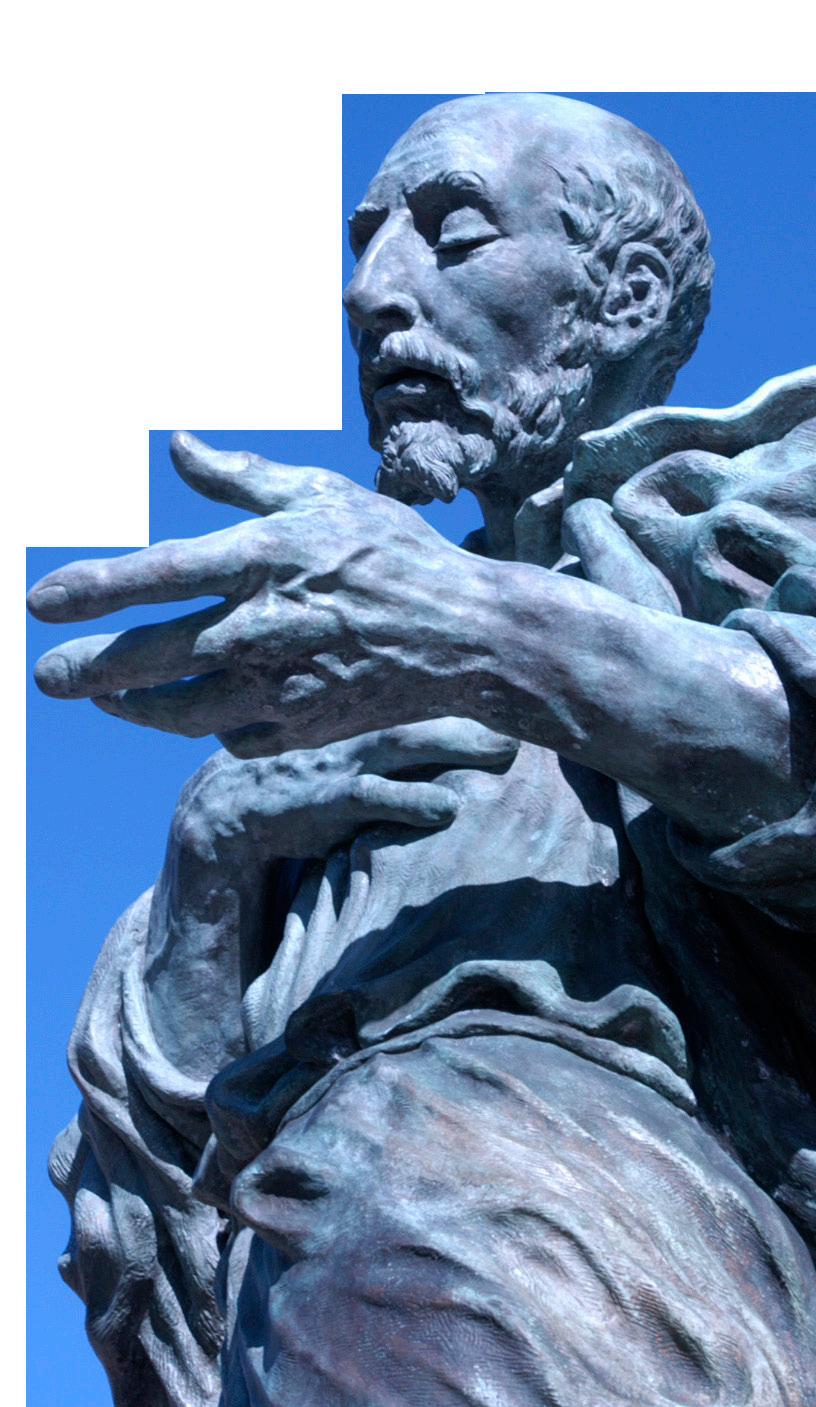
FAITH FEEDS GUIDE - JOURNEYING IN FAITH AMID POLARIZATION: LOVING SOLIDARITY | 13
GATHERING PRAYER
Prayer for Charity
Adapted from the Collect for Charity
Set our hearts aflame, O Lord, with the Spirit of your charity, that we may always think thoughts worthy and pleasing to your majesty, so as to love you and all whom we encounter.
Amen.
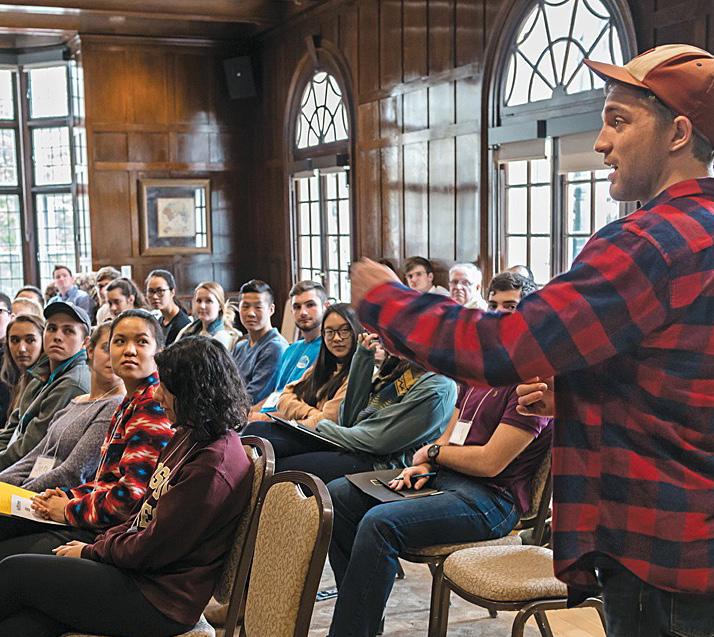
For more information about Faith Feeds, visit bc.edu/c21faithfeeds
This program is sponsored by Boston College’s Church in the 21st Century Center, a catalyst and a resource for the renewal of the Catholic Church. (617)552-0470 • church21@bc.edu • bc.edu/c21


FAITH FEEDS GUIDE - JOURNEYING IN FAITH AMID POLARIZATION: DIALOGUE | 14











